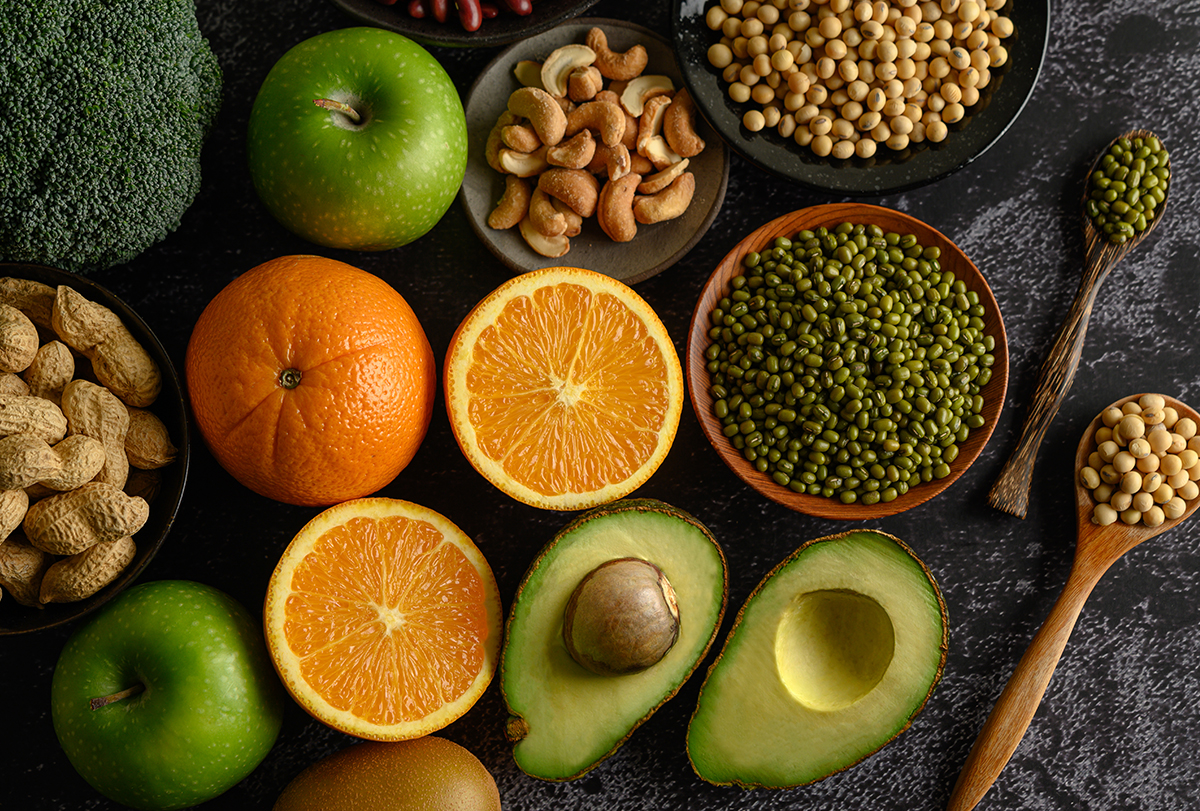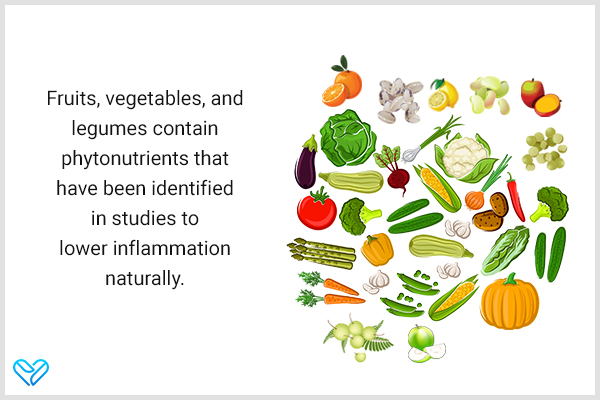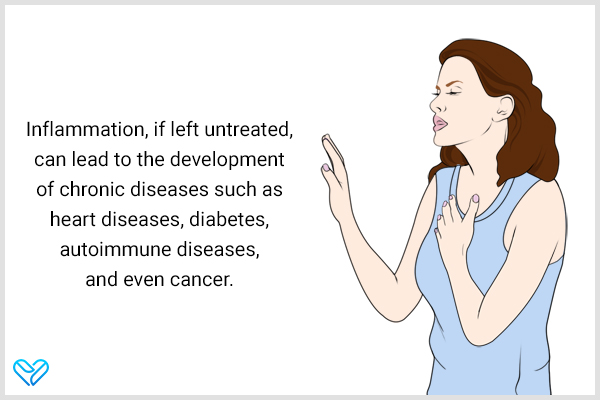In this article:
Phytonutrients or phytochemicals are chemical substances found in plants, fruits, and vegetables that when eaten play certain physiological roles in the body to ultimately benefit health. Studies have shown phytonutrients to prevent and fight against a variety of illnesses.

Common phytonutrients include polyphenols, phytosterols, saponins, carotenoids, catechins, curcumin, anthocyanins, and quercetin. (1)
One of the main roles phytonutrients play in the body is aiding immune function and fighting inflammation. Several clinical trials have proven that a diet rich in phytonutrients can lower inflammation and help fight certain diseases. (2)
This article will discuss what inflammation is and the role phytonutrients play in lowering it.
What Is Inflammation and How Does It Occur?
Inflammation is a natural response of the body when it is exposed to irritants, disease-causing microorganisms, radiation, and damaged and diseased cells. (3)
In such cases, certain immune cells are discharged that reach the site of injury or infection and release substances known as cytokines, acute phase proteins, and chemokines, which aid in the healing of the body. (4)
Inflammation is mainly of two types: acute and chronic or long term. When inflammation resolves within 6 weeks on its own, it is termed acute inflammation, and any inflammation that persists is chronic inflammation. (3)(4)
Persistent inflammation causes these inflammatory cells to reach other parts of the body such as the cells of the heart, liver, brain, lungs, kidneys, reproductive organs, and even intestines, causing damage to tissues and ultimately disease. (5)
How Phytonutrients Help Lower Inflammation Naturally

To combat inflammation, the body produces anti-inflammatory substances.
Fruits, vegetables, and legumes contain phytonutrients that have been identified in studies to lower inflammation naturally. Even though the exact mechanism of this has not been identified, it is believed that these phytonutrients increase the production of anti-inflammatory substances in the body. (6)
Lowering inflammation also helps protect against autoimmune diseases, where the body’s immune cells attack itself.
Some studies have identified resveratrol, abundant in grapes, as effective in treating the symptoms of systemic lupus erythematosus by lowering inflammatory cells in the kidneys and thereby preventing damage to the organ. (7)
Why Is Lowering Inflammation Necessary?
As discussed earlier, long-term untreated inflammation can lead to the development of illnesses and chronic diseases. Studies have found a relationship between inflammation and:
- Diabetes and its complications (8)
- Heart diseases and the formation of atherosclerotic plaques (fatty deposits in the lining of the blood vessels) (9)
- Joint disorders such as arthritis (10)
- Formation of tumors and cancer (11)
Therefore, consume foods high in phytonutrients such as a wide variety of fruits, vegetables, legumes, and lentils to lower inflammation and benefit health.
Can Phytonutrients Be Taken As Supplements?
Some phytonutrients are extracted from foods and used to produce supplements known as nutraceuticals. These have concentrated amounts of these beneficial phytonutrients that benefit health.
However, not everyone can tolerate these supplements, and some may experience stomach distress or complications. Therefore, it is important to consult a doctor to identify your ideal supplements and their doses.
Practical Takeaways

- Phytonutrients are chemical substances present in plant-based foods such as fruits, vegetables, legumes, and lentils.
- Phytonutrients are potent anti-inflammatory agents that help lower inflammation in the body.
- Inflammation, if left untreated, can lead to the development of chronic diseases such as heart diseases, diabetes, autoimmune diseases, and even cancer.
- Was this article helpful?
- YES, THANKS!NOT REALLY


